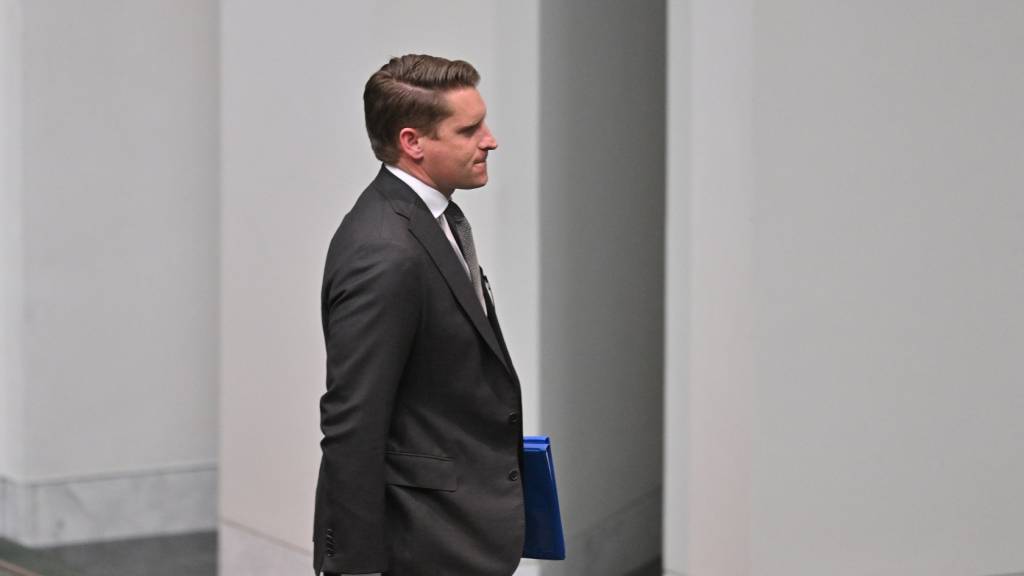
In the evolving landscape of Australian politics, the potential leadership challenge posed by Andrew Hastie to Sussan Ley is capturing significant attention. As Ley navigates a precarious balance between moderate policies and appeasing the far-right factions within her party, Hastie emerges as a formidable contender, positioning himself as a principled leader. This dynamic is stirring discussions among political analysts and constituents alike.
Sussan Ley’s recent attempts to appeal to both moderates and the far-right have been met with mixed reactions. Her outreach to U.S. Republicans exemplifies her strategy to maintain party unity, yet it has led to criticism from those who view her efforts as inconsistent. Meanwhile, Andrew Hastie’s image as a decisive leader is gaining traction, despite his principles primarily resonating with the far-right.
The Rise of Andrew Hastie
Andrew Hastie’s ascent in political circles is marked by his strategic positioning as a leader of principle. Lo Simpson, a political commentator, notes, “Hastie is setting himself up as a decisive man of principle,” though his appeal largely remains within the party’s far-right. This perception is crucial as Hastie seeks to differentiate himself from Ley, whom some perceive as indecisive.
Jackson Harding, another observer, expresses surprise at Hastie’s timing, suggesting that his military background might have advised patience until after a likely electoral defeat for the Liberal National Party (LNP). “I would have thought the Army man in him would have seen that the next election is a dead set certain loss for the LNP,” Harding writes, highlighting the strategic calculations at play.
Media Strategy and Public Perception
Hastie’s media presence has been carefully cultivated, with Goat Girl remarking on the impressive growth of his media profile. However, she remains skeptical of his suitability as a leader, describing him as “a neatly-groomed ex-Army dude” whose image may not align with a progressive vision for Australia. This underscores the challenge Hastie faces in broadening his appeal beyond his current base.
Rod B recalls Hastie’s early promises to tackle drug issues in his electorate, a pledge that has yet to yield significant results according to recent data.
“In August 2024, Perth had the highest estimated average capital city consumption of methylamphetamine, while Western Australia had the highest average regional consumption,”
reports the National Wastewater Drug Monitoring Program. This raises questions about Hastie’s effectiveness in addressing key issues.
Australia’s Manufacturing Debate
As political dynamics unfold, broader debates about Australia’s economic strategy continue. David T challenges the notion of dismissing manufacturing support as “corporate welfare,” emphasizing the role of domestic industries in fostering innovation. He cites historical successes like Ralph Sarich’s orbital engine and Martin Green’s solar cell breakthroughs as examples of how manufacturing can drive technological advancement.
David T argues that targeted policy support is essential for nurturing innovation clusters and maintaining sovereign capability, drawing parallels with successful strategies in Germany and South Korea. His perspective highlights the complexity of balancing free-market principles with strategic industrial support.
Global Perspectives: Tony Blair’s Tech Advocacy
On the international front, Tony Blair’s advocacy for technological advancement, particularly in the realm of artificial intelligence, is met with skepticism. Andrew Bonnell humorously critiques Blair’s memoirs, while Dr Smithy underscores the potential benefits of leveraging AI in healthcare, provided privacy concerns are addressed.
Meanwhile, Olive Oil draws attention to recent policy shifts in the U.S. that could influence global corporate strategies, particularly the emphasis on eliminating diversity, equity, and inclusion policies in mergers. This development, announced by Federal Communications Minister Chairman Brendan Carr, could have far-reaching implications for international business practices.
Implications and Future Outlook
The unfolding political and economic narratives in Australia and beyond indicate a period of significant transition. As Andrew Hastie continues to build his profile, the challenges facing Sussan Ley highlight the complexities of party leadership in a polarized environment. Simultaneously, debates over manufacturing and technological policy underscore the need for strategic foresight in securing future competitiveness.
As these stories develop, the implications for political leadership, economic strategy, and international relations will become increasingly apparent, shaping the trajectory of both domestic and global landscapes.







